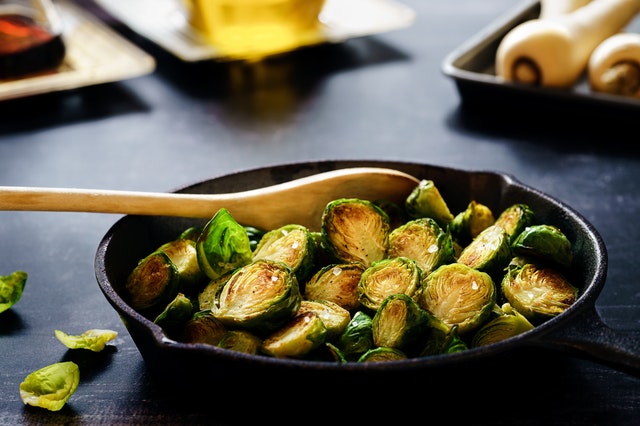Iron deficiency anemia is a condition that involves the lack of both iron and lack of hemoglobin. It is one of the common types of anemia. It affects a lot because red blood cells carry oxygen to the tissues of the body. When your body does not have enough iron, it is unable to produce enough substance in red blood cells as they are important to carry the oxygen to the entire body tissues.
Experts suggest iron supplements to fulfill the requirement of the body. But if the condition is serious, then your doctor might suggest you go for some tests or other treatment to cure the disease. I was at the hospital and checked hospital management software to determine the percentage of iron deficiency anemia patients. 2% Population of adults are suffering from iron deficiency anemia.
People often cannot find that they are suffering from the iron deficiency anemia but you can confirm with some of its symptoms. Iron deficiency for long can worsen anemia, so you must learn about the symptoms of iron deficiency.
Symptoms you should look for:
- Weakness
- Brittle nails
- Poor appetite
- Pale skin
- Colds hands and feet
- Soreness of tongue
- Extreme fatigue
- Dizziness
- Headache
What Are The Causes Of Iron Deficiency Anemia?
Lack of iron does not allow your body to produce the enough amount of hemoglobin. Here are some of the causes of iron deficiency anemia, such as:
Due to blood loss: Blood consists of iron along with red blood cells. When a person loses some blood, it means that the person also loses iron. Studies reveal that women who experience heavy periods are more likely to encounter iron deficiency anemia. The reason is clear that they lose a lot of blood during menstruation. There is some other blood loss inside your body that can cause iron deficiency, such as hiatal hernia, peptic ulcer, etc. there are some medicines that cause gastrointestinal bleeding, such as pain relievers, etc.
When your body cannot absorb iron
When you eat foods, your body absorbs iron from them. Celiac disease also affects the overall body and reduces the intestine’s ability to absorb the nutrients from digested foods.
When you are pregnant
Pregnant women often experience iron deficiency because iron which is stored in their body is responsible for both woman and the fetus.
What Are The Risk Factors That Contribute To Iron Deficiency Anemia?
Prevention is the key to a healthy life because recovery from any disease can hit a part of your time.
Here are some risk factors that you need to be aware of:
Children: Infants who were born with low birth weight or those who do not get enough iron from breast milk put the infants and kids at high risk of developing iron-deficiency anemia.
People who donate blood frequently: frequent blood donation can increase the chance of developing iron-deficiency anemia. When you donate blood more often, it depletes iron stores. You can eat more iron-rich foods to meet the deficiency of iron in your body.
Best Foods to Eat For Iron Deficiency Anemia
Here are some foods that are rich in iron and are beneficial for your body.
Fortified cereals
Breakfast cereals are high in iron but you need to make sure the right type is according to your body requirement. If you are choosing any breakfast cereals for your kids, you need to consult with your doctor.
Dark chocolate
Now, you have a chance to eat dark chocolate for health benefits. Experts suggest eating dark chocolates if you are suffering from iron deficiency.
Cooked Oysters
Going to eat seafood? Well, you need to consider some cooked oysters as they are rich in iron with 7.83mg. People often like to eat raw oysters but they are not that beneficial as compared to cooked oysters.
Soybeans
For ideal proteins, you should eat soybeans as they are dense in nutrients, which is enough for per day iron intake.
Spinach
Spinach is a leafy green vegetable that contains only a few calories. Studies say that it is a great source of vitamin C and it helps in absorbing iron. This leafy green spinach contains antioxidants like carotenoids. Nutritionists say that olive oil is a good match for spinach to get more healthy fat benefits.
Legumes
Studies describe legumes as nutrient-rich food. You can go with different kinds of legumes, including chickpeas, soybeans, lentils, peas, etc. vegetarians can get enough iron from legumes. People with diabetes should also intake legumes as they help in reducing inflammation. Its intake also decreases the risk of heart-related diseases. Vitamin C helps in absorbing iron from foods, so it is a good practice to eat foods that are rich in vitamin C along with legumes.
Pumpkin Seeds
Pumpkin seeds are popular as they are portable snacks. Researchers say that the seeds contain manganese, zinc, and Vitamin K. People who are recommended to eat magnesium-rich foods should try pumpkin seeds as experts say that they are also rich in magnesium.
Turkey
Turkey is a popular dish for many events. But do you know that it is beneficial with its delicious taste?
Dark turkey contains 1.4 mg of iron while white turkey contains 0.7 mg. Studies also share that intake of turkey can help you lose some weight and also make you feel full for longer. Intake of turkey also slows down the aging process. Everone need to know that is the diet they get are beneficial or not so that to increase quality of life
Broccoli
One cup of cooked broccoli contains 1 mg of iron that is good to meet the deficiency of iron. Vitamin C also helps your body to absorb iron better. Intake of such vegetables can help you against cancer and also prevent the risk factors. It is also rich in vitamin K.
Final Thought
Dark leafy greens, poultry, beans, dried fruits, and red meat are rich in iron that can help you to prevent iron deficiency anemia. If your body is unable to absorb iron, you should increase the intake of oranges, melons, etc. If you feel dizziness, visit the best doctors for a complete checkup.

